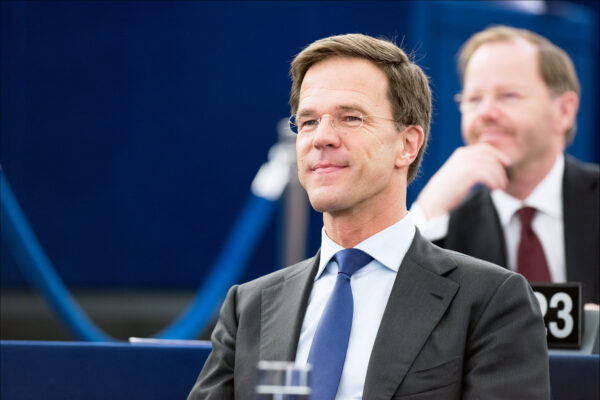
Mark Rutte is favored by the Netherlands’ ruling liberals to lead their party into the next election, due in early 2017.
Rutte has been party leader since 2006 and prime minister since 2010. His popularity has gone down since he made a pact the left-wing Labor Party in 2012, but the right-wing liberals could still win the most seats in the next election.
Rutte hasn’t announced his intentions yet, but his two likeliest successors recently signaled they would not challenge him for a third term.
“Difficult circumstances”
The national broadcaster NOS reports that Halbe Zijlstra, the liberal group leader in parliament, would rather take a cabinet post in the next government than replace Rutte.
“I think it would be good for the Netherlands if Rutte decided to continue,” Zijlstra told reporters. “I don’t know anyone else who could keep the country going in these extraordinarily difficult circumstances.”
The Dutch economy, Europe’s sixth largest, is showing sign of recovery. 2 percent growth is expected this year and unemployment is falling. Rutte might finally be able to make good on his promise to lower taxes in the final year of his administration.
The country’s politics remain hopelessly divided, however. Some polls put Geert Wilders’ nationalist Freedom Party ahead. Labor is an historic low. The Christian Democrats, traditionally the big party of the middle, wouldn’t get twenty seats or more out of 150 in parliament. Nor would the liberal Democrats, the other centrist opposition party. The next coalition might need an unprecedented four or five parties for a majority.
Pragmatist
Rutte, who has ruled with the Christian right as well as the center-left, is seen as a pragmatist who could keep such a disparate coalition together.
Zijlstra is more of a hardliner, especially on immigration and the European bailout of Greece, two areas where Rutte’s more compromising policy has led to defections to the far right.
Another potential leadership contender, health minister Edith Schippers, has also said Rutte is the best candidate.
